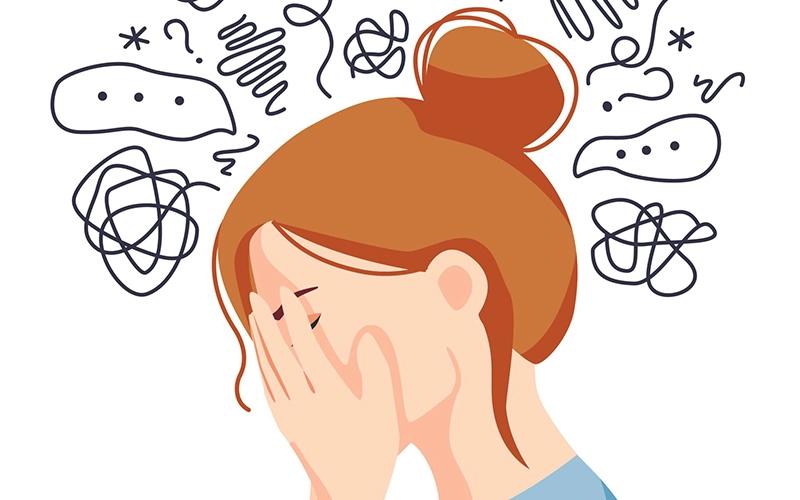Understanding Health Anxiety: Causes, Symptoms, and Management
Health anxiety, also known as illness anxiety disorder or hypochondria, refers to an individual's excessive worry about having a serious illness, even when little or no medical evidence supports these concerns. This form of anxiety can lead to distress, preoccupation with health-related matters, and constant checking or seeking reassurance from doctors or online sources. Health anxiety can impact daily life, relationships, and overall well-being, making it crucial to understand its causes, symptoms, and strategies for management.
What is Health Anxiety?
Health anxiety is characterized by persistent fear of illness or an exaggerated response to bodily sensations, such as aches, pains, or other symptoms. Those with health anxiety may constantly monitor their body for signs of illness, misinterpret normal sensations as symptoms of serious disease, and repeatedly seek medical consultations, even when reassured that nothing is wrong.
Health anxiety is different from being health-conscious. While it’s normal to be concerned about one’s health and seek medical advice when necessary, individuals with health anxiety often find it difficult to stop worrying, even after doctors provide reassurance. The distress caused by this constant worry can interfere with everyday life, affecting work, social interactions, and overall happiness.
Common Symptoms of Health Anxiety
- Excessive worry about health: People with health anxiety often focus intensely on their physical health, interpreting minor or normal sensations as signs of a severe illness. They may become consumed with thoughts about diseases like cancer, heart conditions, or neurological disorders.
- Frequent checking: Checking for bodily changes, repeatedly monitoring symptoms, and seeking information online about illnesses are common behaviors. This can exacerbate anxiety and fuel the cycle of worry.
- Reassurance-seeking: Individuals with health anxiety may frequently visit doctors or specialists, hoping for reassurance. While this may temporarily alleviate anxiety, the worry typically returns, leading to more doctor visits or searches for information.
- Avoidance behaviors: On the other hand, some people with health anxiety may avoid going to the doctor or seeking medical tests out of fear that they will receive bad news. They may also avoid conversations or media related to illnesses.
- Physical symptoms: Health anxiety can also manifest in physical symptoms such as headaches, chest pain, and digestive issues, which may further reinforce the belief that they are unwell.
Causes of Health Anxiety
Several factors may contribute to the development of health anxiety:
- Family history: Individuals with a family history of anxiety disorders or health-related fears are more likely to develop health anxiety.
- Personal experiences: Having experienced a serious illness personally or seeing a loved one go through illness can trigger health anxiety. These events may cause individuals to become hyperaware of their own body and health.
- Cognitive biases: People with health anxiety may have cognitive distortions, such as catastrophizing, where they assume the worst possible outcome when experiencing a symptom. They might also have a heightened sensitivity to bodily sensations, making them more likely to perceive normal physical changes as problematic.
The Impact of Health Anxiety on Daily Life
Health anxiety can have a significant impact on mental and physical well-being. Individuals may spend excessive amounts of time worrying, researching, and seeking reassurance, which can take away from other important aspects of life. Relationships can be strained, as constant worry or focus on illness may limit meaningful interactions or cause frustration among family members or friends.
Additionally, health anxiety can increase stress levels, leading to physical symptoms like headaches, muscle tension, and fatigue. In some cases, this may result in a vicious cycle where stress-induced symptoms fuel even more anxiety about one’s health.
Managing Health Anxiety
Health anxiety can be managed through various strategies, ranging from self-care to professional interventions. Some of the most effective approaches include:
- Cognitive Behavioral Therapy (CBT): CBT helps individuals recognize and change unhelpful thought patterns that contribute to anxiety. By challenging catastrophic thinking and encouraging more realistic interpretations of bodily sensations, CBT can reduce the intensity of health-related fears.
- Mindfulness and relaxation techniques: Mindfulness practices can help individuals with health anxiety focus on the present moment rather than constantly worrying about potential future illnesses. Relaxation techniques such as deep breathing and meditation can also reduce overall stress levels.
- Limiting reassurance-seeking behaviors: Reducing the frequency of doctor visits, online searches about symptoms, and body-checking behaviors can help break the cycle of health anxiety. While this can be challenging at first, it is a key step toward reducing the preoccupation with health concerns.
- Education: Learning about the nature of health anxiety and how the mind and body interact can be empowering. Understanding that normal bodily sensations are common and not necessarily indicative of a serious illness can help shift one's perspective.
- Lifestyle changes: Engaging in regular physical activity, maintaining a balanced diet, and getting adequate sleep can promote overall well-being and reduce anxiety.



